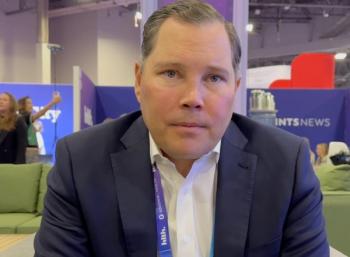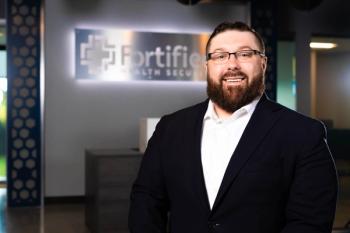
Collaborating Is Key for Cybersecurity Plans
Jothi Dugar, chief information security officer at NIH Center for IT, said working in a silo isn’t good for an organization.
Cybersecurity issues are plaguing the healthcare industry — and coming up with a strong plan is essential to mitigate risks and vulnerabilities.
At the 2019 World Health Care Congress meeting in Washington, D.C., Jothi Dugar, chief information security officer (CISO) at NIH Center for Information Technology, told Inside Digital Health™ that when it comes to healthcare organizations that share data with other clinics and providers, it’s important to have high-quality interconnectivity security agreements in place. These agreements allow health systems to document which data are sent to a third party, the identity of that third party, who to call ifa data breach occurs on your end and who would call if there is a breach on the other end.
Dugar is in the process of coming up with a cybersecurity plan for her organization. She said she is looking at everything from a holistic and integrative point of view.
“So the CISO working in a silo is not really going to be beneficial for an organization,” she said.
To be successful, the CISO must collaborate with other executives. And for hospitals and health systems, Dugar suggests working with and educating patients about cybersecurity as well.
Education can even be fun too.
When Dugar worked at the NIH Clinical Center, she created a security rap video for the hospital with common do’s and don’ts. The video aimed to take the fear away from cybersecurity.
What it comes down to: It’s important to speak the language that resonates most with whomever the cybersecurity plan is meant to address.
Get the best
Related






































